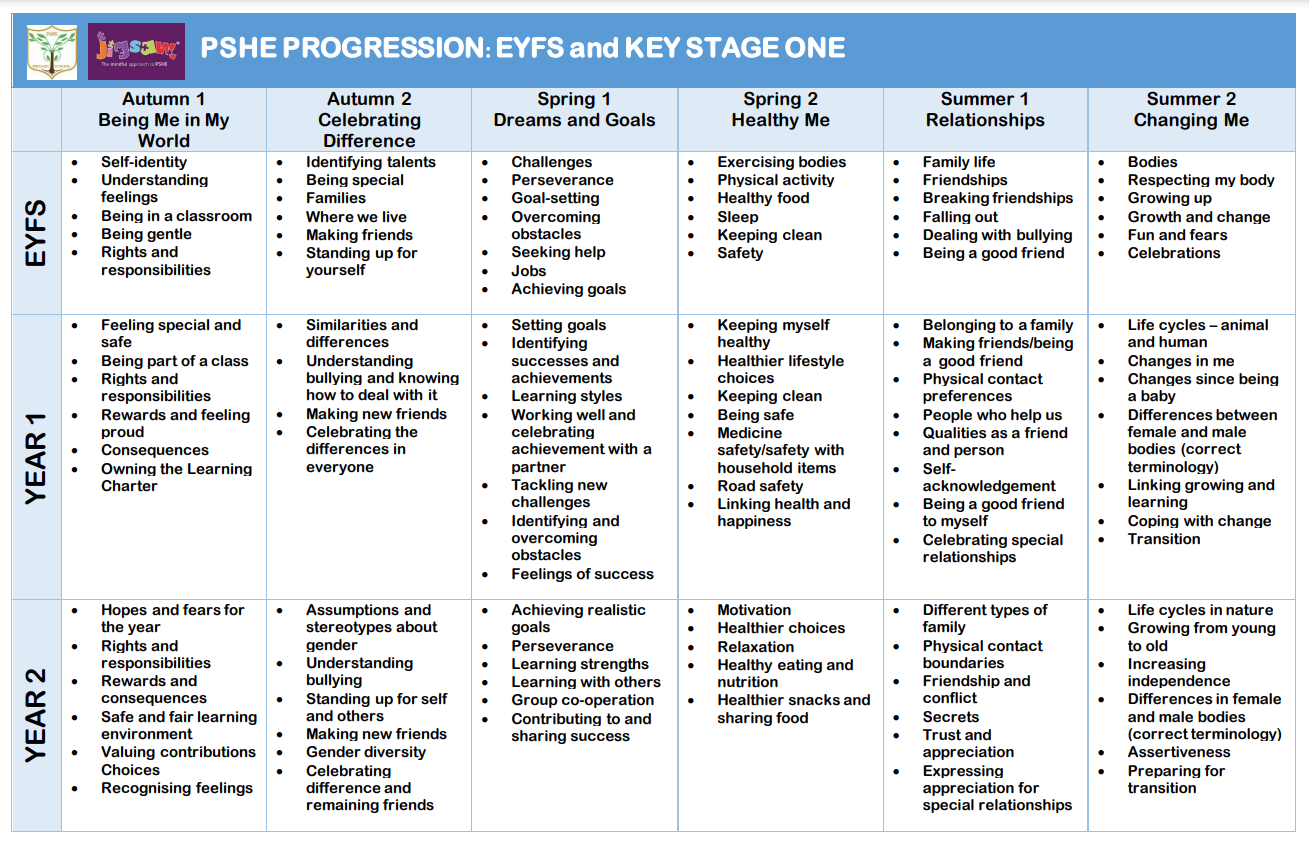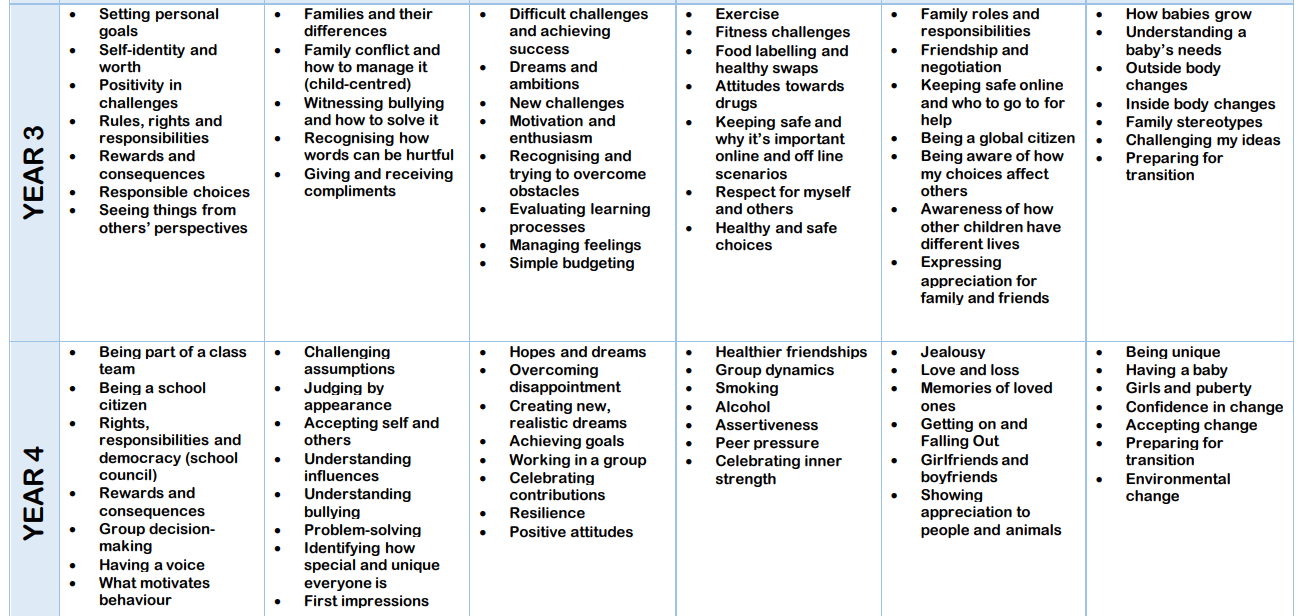Personal, Social and Health Education (PSHE) at Park
INTENT
At Park, we have designed our PSHE curriculum to:
Meet the requirements of the National Curriculum, Early Years Framework and statutory guidance from the DfE
Be rich in knowledge that is meaningfully connected to what children already know
Build a strong understanding of big ideas such as leadership and power over their time at Park
Develop empathetic citizens of now and the future, equipped and empowered to make a difference in an ever-changing world
Grow in an understanding of what healthy relationships look like, how to cultivate these and what to do if relationships are not good for them
Develop a secure understanding of who they are as they develop and how to keep a healthy mind and body
IMPLEMENTATION
To achieve these aims, our subject leader has planned what will be taught in each year group and set this out in a long-term plan. We have a whole school focus each half term but each year group is focused on a different part of this to suit their age and stage of development. This progression can be seen in our long-term plan below:
We have an integrated whole school approach to teaching PSHE which begins right from Early Years. Each class has a weekly PSHE session to explore themes, using circle time, discussion regularly to explore ideas with children. We begin each session with a clm focus activity to promote mindfulness with the children. We use resources from the . JIGSAW scheme of work to support our delivery of the PSHE curriculum.
In additional to the weekly PSHE sessions, Park Primary is also proud to be a Forest School offering sessions in the school grounds and in our local parks. During these lessons the children not only learn about nature but they build relationships, increase their resilience and learn to appreciate the world in which they live. They consider how to keep themselves and others safe at all times whilst learning valuable life skills, which they would not ordinarily gain within a classroom environment.
Relationships and Health Education (RHE)
Part of our PSHE curriculum includes the statutory requirements to teach children about healthy relationships, changes during puberty and how babies are made. This is carefully planned out to ensure that what we teach is appropriate for the age and stage of your child and always taught with sensitivity. Please click below to see what is taught in each year group.
If you have any questions or concerns about what we are teaching, would like to see the materials we will use with your child or withdraw your child from these sessions. Please call the office to book an appointment to discuss this
The statutory guidance for relationships education, relationships and sex education (secondary schools) and relationships and health education (primary school) can be found below by clicking the link:
IMPACT
To be sure that our curriculum is working for your child, we regularly check whether they have gained the knowledge set out in our PSHE curriculum. Within lessons, we set up short activities to check what they have understood and remembered. Where children show they have not understood or remembered some key learning, we will make adaptations for them within the lesson and change our planning for future lessons to address this and help them remember more.
At the end of the unit, we check whether children have remembered all of the key learning for the unit. We make a summary judgement as to whether they have met Park’s expectations and learned what we expect them to. We will inform you of your child’s PSHE attainment in their end of year report. We will also let their next teacher know, so that they can plan to meet your child’s needs in the next class.
Our PSHE subject leader and senior leadership team regularly review the assessments made in PSHE and visit their lessons and talk to children to check whether our curriculum is working to help your child master key personal, social and health understanding. We use this to reflect on what has been taught, how it has been taught and make further improvements to our curriculum.


